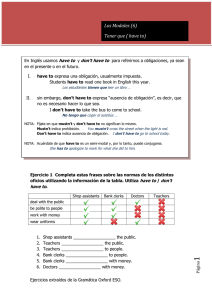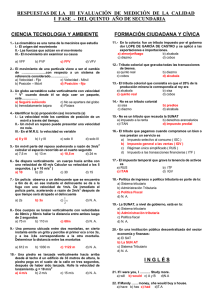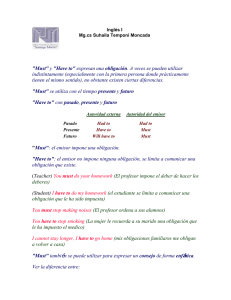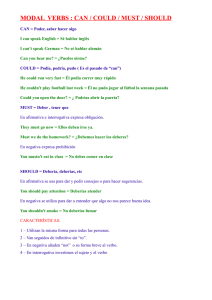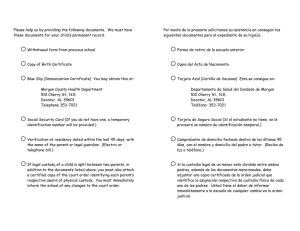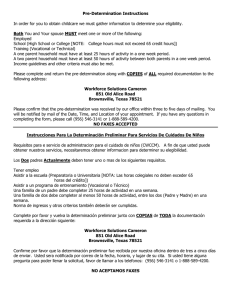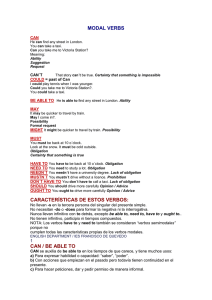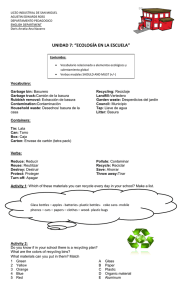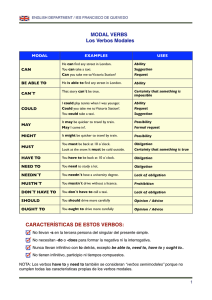VERBOS MODALES PARA OBLIGACION
Anuncio
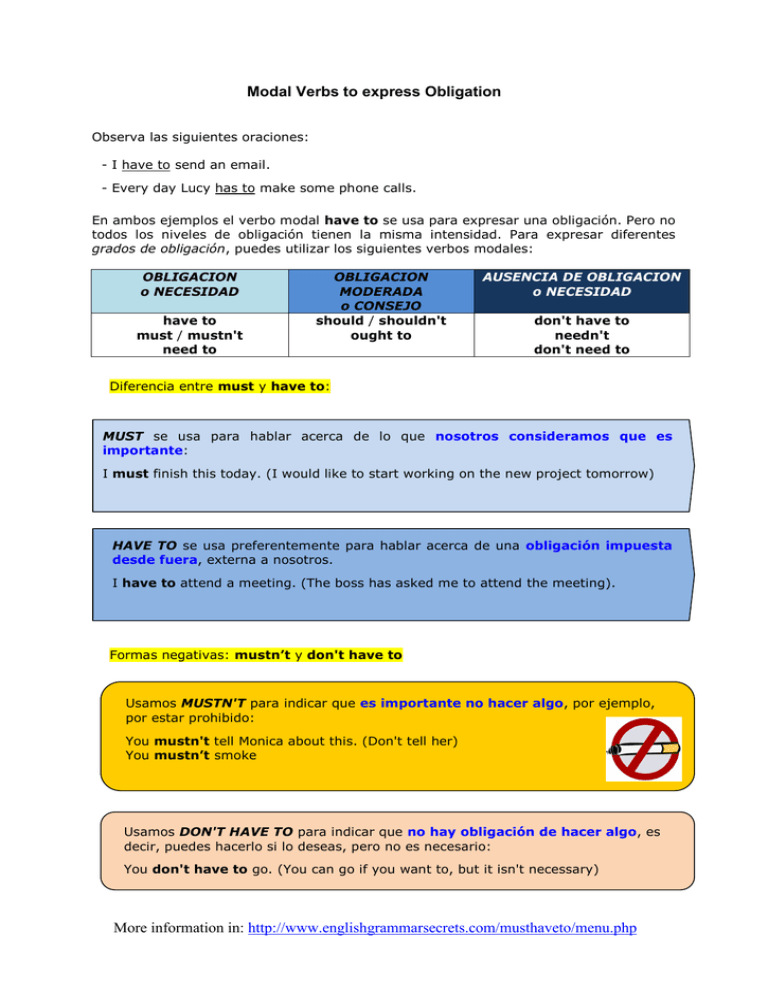
Modal Verbs to express Obligation Observa las siguientes oraciones: - I have to send an email. - Every day Lucy has to make some phone calls. En ambos ejemplos el verbo modal have to se usa para expresar una obligación. Pero no todos los niveles de obligación tienen la misma intensidad. Para expresar diferentes grados de obligación, puedes utilizar los siguientes verbos modales: OBLIGACION o NECESIDAD have to must / mustn't need to OBLIGACION MODERADA o CONSEJO should / shouldn't ought to AUSENCIA DE OBLIGACION o NECESIDAD don't have to needn't don't need to Diferencia entre must y have to: MUST se usa para hablar acerca de lo que nosotros consideramos que es importante: I must finish this today. (I would like to start working on the new project tomorrow) HAVE TO se usa preferentemente para hablar acerca de una obligación impuesta desde fuera, externa a nosotros. I have to attend a meeting. (The boss has asked me to attend the meeting). Formas negativas: mustn’t y don't have to Usamos MUSTN'T para indicar que es importante no hacer algo, por ejemplo, por estar prohibido: You mustn't tell Monica about this. (Don't tell her) You mustn’t smoke Usamos DON'T HAVE TO para indicar que no hay obligación de hacer algo, es decir, puedes hacerlo si lo deseas, pero no es necesario: You don't have to go. (You can go if you want to, but it isn't necessary) More information in: http://www.englishgrammarsecrets.com/musthaveto/menu.php

